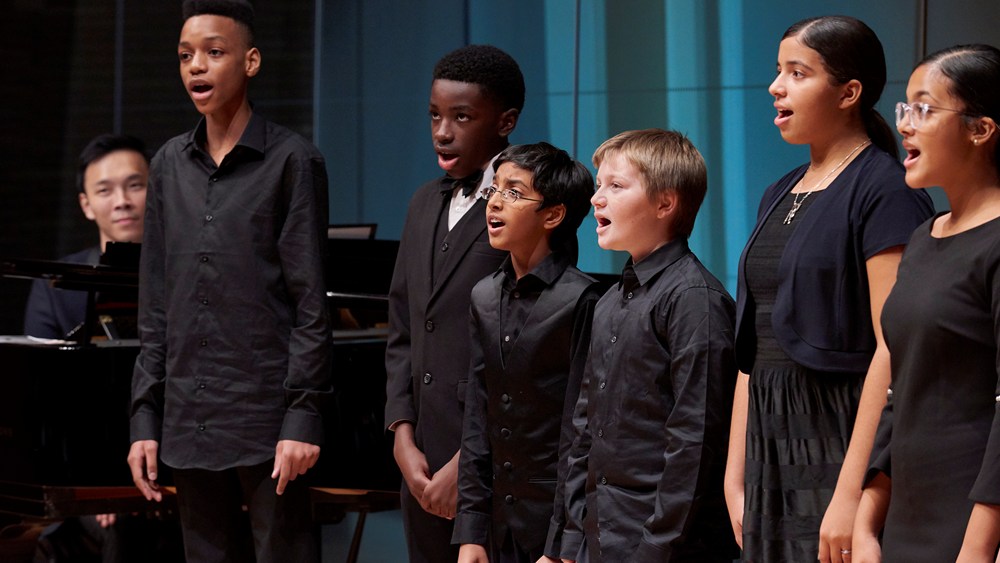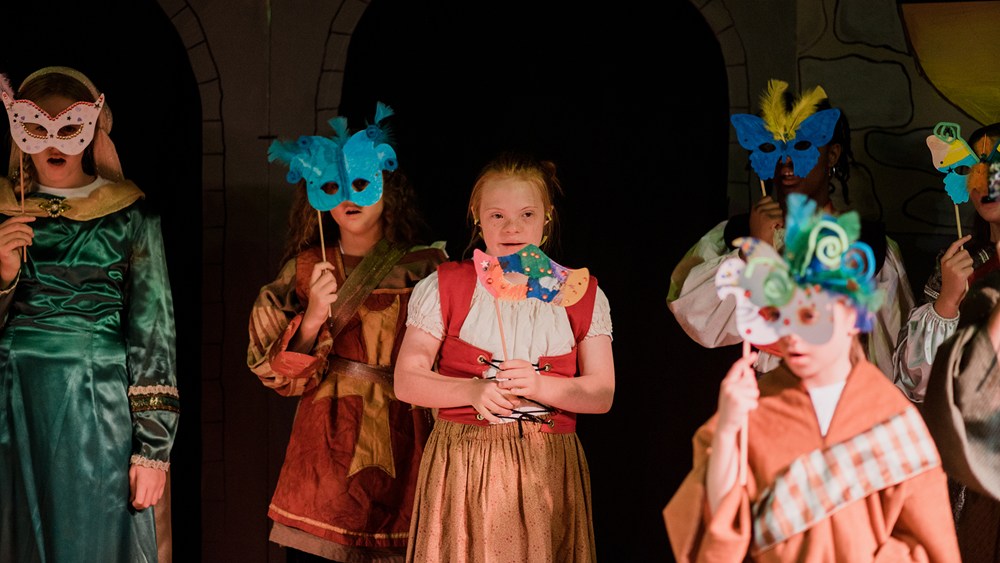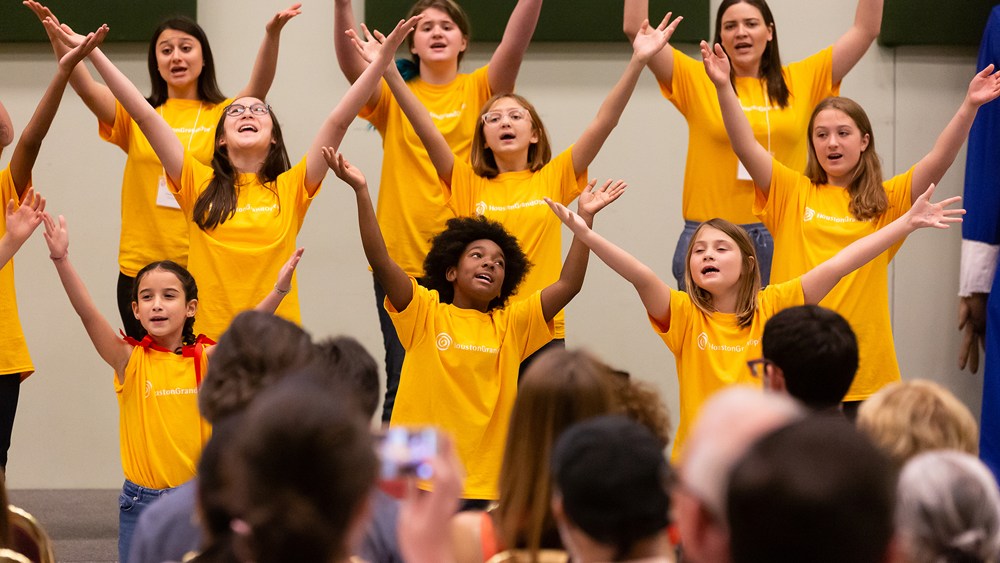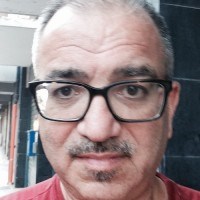Tweens Find Their Voices

In a rehearsal studio on the 11th floor of Carnegie Hall’s Resnick Education Wing, Ken Noda, musical advisor to the Met’s Lindemann Young Artist Development Program, leads a master class with a group of roughly three dozen New York City public school students. Four of them get to perform, valiantly. The quality of their singing of show tunes and arie antiche is variable — if there are any nascent Renée Flemings or Brian Stokes Mitchells in the group, it is not yet apparent — but Noda is unfailingly encouraging to each one, finding elements to praise while leading them toward a heightened connection to the material. What’s unusual about these kids is their age: These are not high school upperclassmen on a path to college-level vocal studies; instead, they’re all eighth graders.
Like Carnegie Hall, a number of prominent musical institutions now offer vocal instruction, of one sort or another, to middle-school-aged children. The focus of these programs varies. Carnegie’s “Count Me In!” is specifically devised to help the students prepare audition pieces for the city’s ultra-competitive performing arts schools. “They want to be like their favorite pop stars,” says Margaret Fortunato, an associate in the organization’s youth programs department. “But even Beyoncé learned classical music at one point — she had to.”
Pensacola Opera’s Youth Opera Camp seeks to develop an appetite for opera among kids aged 8 to 12. The immersive one-week experience leads them through the production of a 30-minute adaptation, with dialogue, of a mainstage title from the upcoming season. The kids build the sets, make costumes and learn simplified versions of the arias.
Many of the Youth Opera Camp participants do not know how to read music. But they work with faculty from the University of West Florida to learn the basics of performing vocal music. “The first thing is to make sure they know the words,” says Cody Martin, Pensacola Opera’s director of education. “Then there comes a point where we ask them, ‘What are you trying to say here? How would you speak it? How does that translate into singing?’” Martin says that the camp introduces a number of the students to singing, and some go on to children’s choruses.

The five- to eight-year-olds in Seattle Opera’s spring-break “Maestros” camp write their own opera stories. This year’s theme, anticipating next season’s mainstage production of Cenerentola, was “Cinderella,” using musical adaptations of the fairy tale, from Rossini to Rodgers and Hammerstein. Meanwhile, the students of all ages in the company’s Youth Opera Project work through the school year toward the public performance of a youth opera in the spring.
The nine- to twelve-year-olds in the “Crescendo” program, the Youth Opera Project’s intermediate chorus, present mainstage production of Cenerentola, was “Cinderella,” using musical adaptations of the fairy tale, from Rossini to Rodgers and Hammerstein. Meanwhile, the students of all ages in the company’s Youth Opera Project work through the school year toward the public performance of a youth opera in the spring.
The nine- to twelve-year-olds in the “Crescendo” program, the Youth Opera Project’s intermediate chorus, present a particular educational challenge, according to Sara Litchfield, manager of Seattle Opera’s youth and family programs. “It’s a time of transition — physically, mentally, vocally,” she says. “Insecurity plays a big role in what they are willing to do. If they feel insecure, it’s hard to get them out of their comfort zone.”
The boys of that contingent face a special challenge, in that their voices are likely to change. “It’s so important that they know their instruments so that when their voices change, they don’t lose that,” says Litchfield. “We want to make sure that we provide a safe space. A lot of boys in middle school don’t get that elsewhere.”
Although Houston Grand Opera’s one-week summer program “I Will Sing! ¡Cantare!,” for students in grades four to nine, started as a feeder for the company’s children’s chorus, its mission has since changed. The focus is no longer vocal training per se, but the promotion of social-emotional learning. “A group of people coming together to sing is one of the healthiest things you can do,” says Carleen Graham, director of HGOco, the company’s community-engagement arm. “It’s a way of getting people to listen carefully –– not just to themselves, but to each other. This is a holistic way of educating children.”
HGO has deliberately downplayed the word “opera” in its publicity for the program. “We don’t want people to look at it and say, ‘My kid has to love opera to do this,’” says Graham. “We want kids to see that it’s a fun way to spend time in the summer — that it’s really a camp. They need to go home every day singing songs and looking forward to the next day.”
Formal vocal training is not part of the agenda for these programs. “Until the voice reaches a certain maturity, it’s not necessarily the best use of their time to have them take individual voice lessons,” says Anthony Trecek-King, president and artistic director of the Boston Children’s Chorus (BCC). “But you can start to instill good habits, like breath support and vowel formation, so that when they’re ready to take voice lessons, they have a foundation to build upon.”
The BCC’s various programs include singers from the age of 7 to 18, with its Intermediate Choirs reaching students aged 10 to 14. A number of BCC alumni have gone on to further vocal study –– among them, mezzo-soprano Samantha Hankey, currently on the roster of the Bavarian State Opera –– but that is not the organization’s main mission. “My goal is to get them to be lifelong singers,” Trecek-King says. “Sure, anybody can open their mouth and make sound. But to sing well is a challenge. I want them to understand what the voice is capable of doing.”

This article was published in the Summer 2019 issue of Opera America Magazine.

Fred Cohn
Fred Cohn is the former editor of Opera America Magazine.





